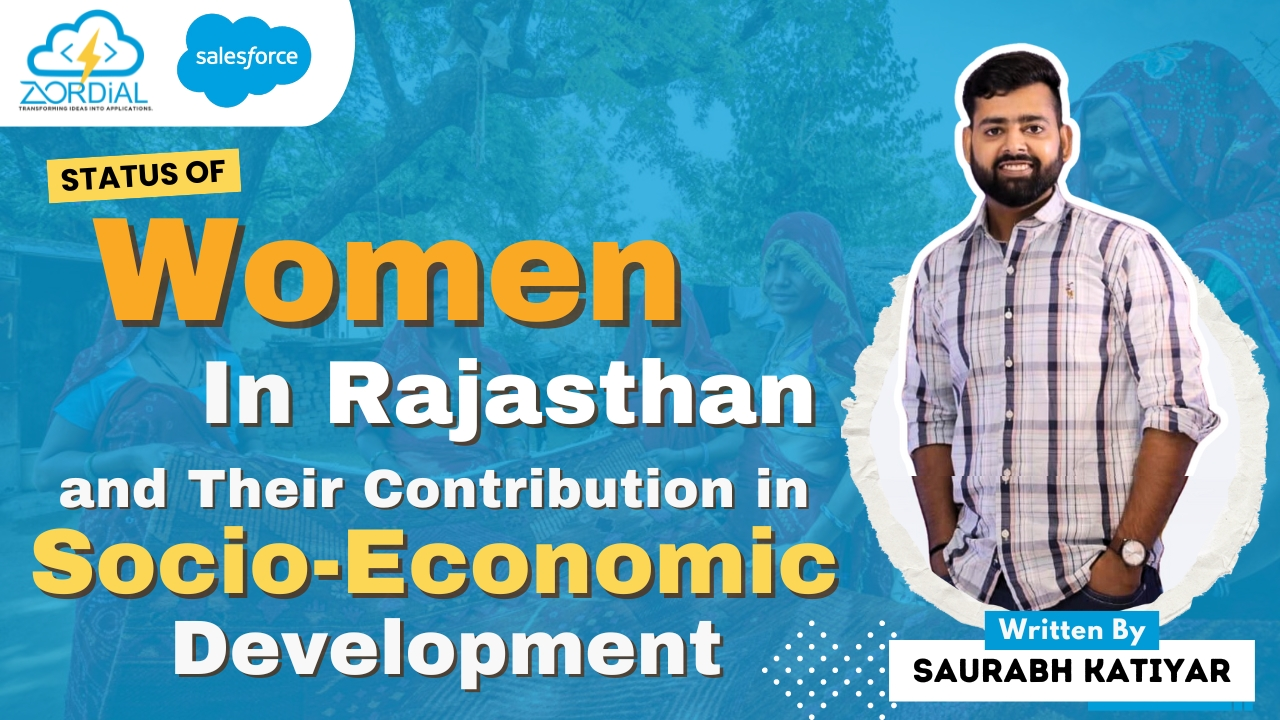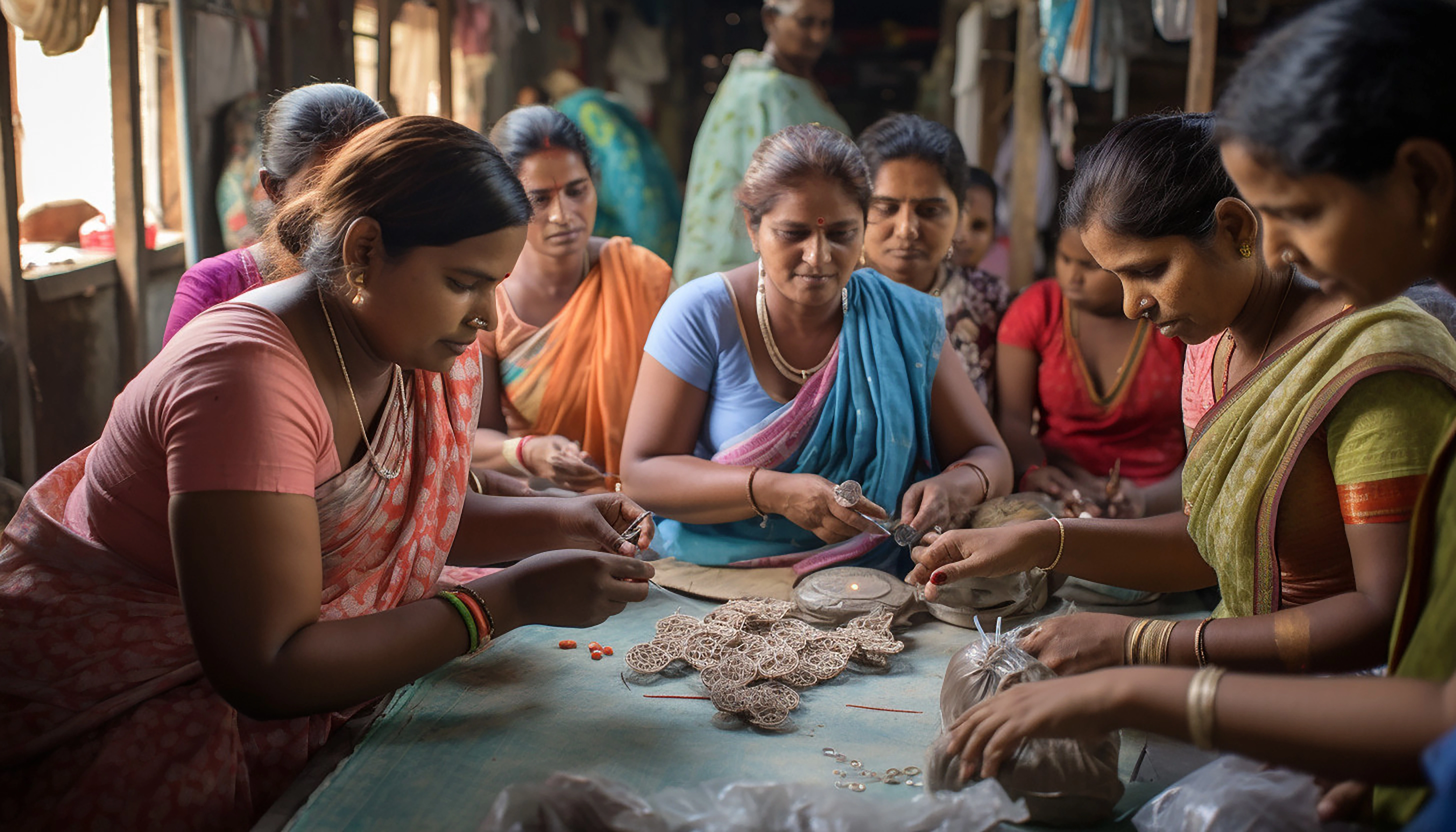Status of women in Rajasthan
Status of women in Rajasthan and their contribution in socio-economic development

Population of women in Rajasthan
The direct impact of the socio-economic and political conditions of any state can be seen on its population composition.
In 2023, the sex ratio of the total population in Rajasthan is 928 females per 1000 males. There are 41,720,000 males and 39,596,000 females in Rajasthan. Rajasthan has 2,124,000 more males than females.
The sex ratio of Rajasthan reflects the social status of women there and the growth rate of education.
Gender inequality in Rajasthan
Despite being in the 21st century and at the peak of modernity, even today many parts of the society are deprived of the light of knowledge.
The right to equality is considered our fundamental right in the Constitution of India, yet the male- dominated society does not give equal status to women. Therefore, the society considered women only as goods. Women are considered suitable only for household work and in the name of security, their freedom and education rights are also taken away from them.
Rajasthan has the biggest gender divide of 23.2% in terms of literacy rate across the country, making it one of the most gender unequal states.
The National Statistical Survey Organization (NSSO) report released in January says the literacy rate among males in the survey year (2017 and 2018) was 80.08%, while for females it was 57.6%.
Female education rate in Rajasthan
Literacy rate in Rajasthan has seen upward trend and is 66.11 percent as per latest population census. Of that, male literacy stands at 79.19 percent while female literacy is at 52.12 percent.
Why female literacy low in Rajasthan?

Due to Rajasthan being a patriarchal society, no attention is paid to women's education. Girls are expected to get married at a young age and are expected to be skilled in taking care of the house and children. Along with the social reasons for low level of education in Rajasthan, there are many economic reasons also. That is, due to poor economic condition in the family, girls' education is not given attention and boys are given priority. Marrying at an early age and being engaged in household work are the reasons why women's literacy rate is much lower than that of men.
Employment rate of women in Rajasthan
| Sl. No. | State/UT | Female WPR |
|---|---|---|
| 22 | Rajasthan | 37.6 |
| 23 | Sikkim | 58.5 |
| 24 | Tamil Nadu | 38.3 |
| 25 | Telangana | 41.8 |

The schemes for women in Rajasthan
Many governmental and non-governmental organizations have made important contributions in encouraging women.
Such institutions are constantly striving to provide education and employment to women.
The schemes that are in support of women are Lakhpati Didi Yojana 2024, LADO Incentives Schemes 2024, Chief Minister Ekal Nari Samman Pension Scheme, Rajasthan Mukhyamantri Kanyadan Yojana 2023, Free Scooty Scheme.
Social reformer of Rajasthan
Before independence and even after independence, India has been struggling with many social evils. And due to lack of education and superstition, Rajasthan is also not free from social evils. Many social reformers in all the states of India have made incomparable contributions to free the society from these evils.
Gyan Prakash Pilania worked with the Indian Police Service. In Rajasthan, he is a social reformer and farmer minister. He was born on February 18, 1932, in the district of Ganganagar in Rajasthan, now known as Hanumangarh, India.
Contribution of women in social and political awakening in Rajasthan
Rajasthan is known as the land of warriors. Therefore, many women have burnt their lives in the furnace of struggle because of political policies and problems. Sometimes, in the name of protection of the kingdom, political marriages were conducted and sometimes, to maintain the courage of men in war, they were wrapped in the fire of Jauhar. Therefore, even after independence, they did not get their due place and respect. Even in such adverse circumstances, women took steps towards awareness.
During the freedom movement in the 1940s, political activism extended even to remote regions like Banswara in Rajasthan. Here, women actively supported and became members of Prajamandal, joining the rebellion against British colonial rule and feudal injustices.



